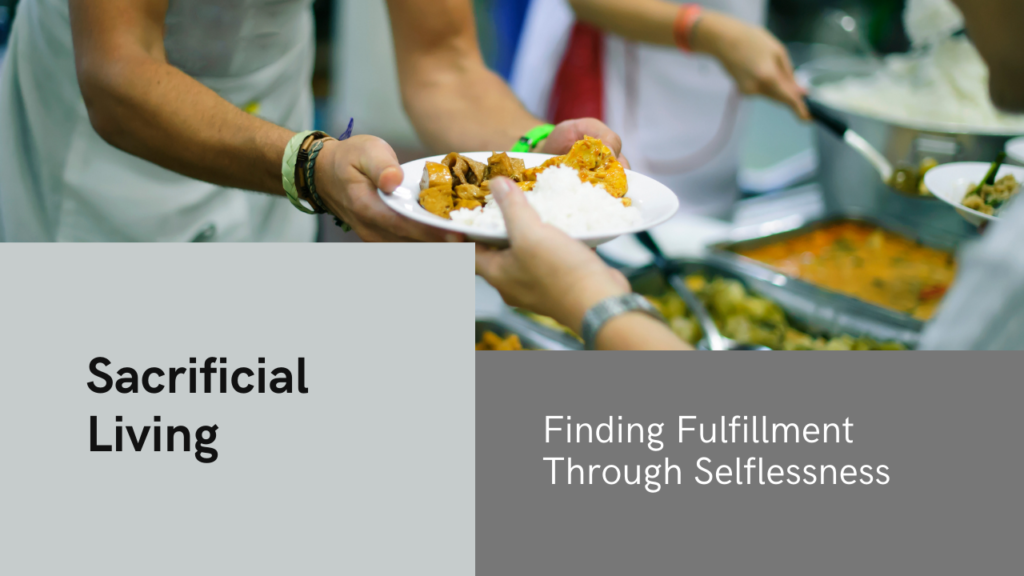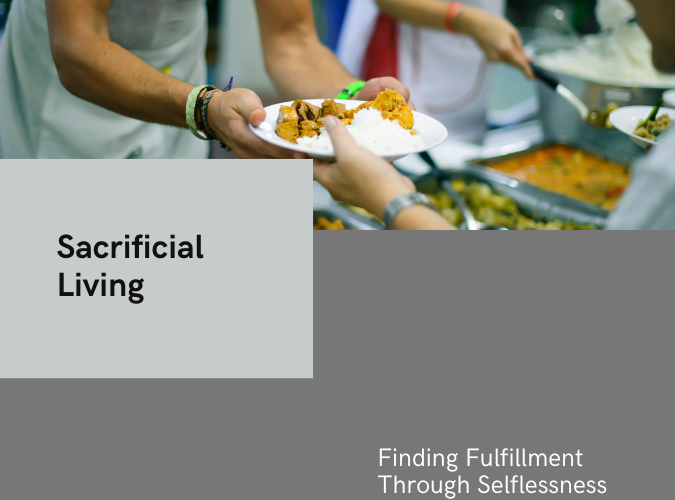In a world that often celebrates individual achievement and personal gain, the idea of sacrificial living can seem countercultural. Yet, the sacred texts remind us that true fulfillment comes not from what we accumulate, but from what we give of ourselves. Sacrificial living is about embodying love, humility, and service daily. Through various scriptures, we can explore the rich tapestry of what it means to live sacrificially. This concept is a timeless principle that resonates with many spiritual traditions.

The Ultimate Sacrifice
In Hebrews 7:26-27, we are introduced to Jesus as the ultimate high priest, who offered Himself as a perfect sacrifice. This act of selflessness sets a profound example for us, illustrating that true sacrifice often involves personal cost but yields immeasurable spiritual gain. It calls us to examine ourselves and consider how we can model such self-giving love in our communities through sacrificial living.
A Life of Justice and Mercy
The words of Micah 6:6-8 challenge us to move beyond mere ritualistic offerings to a heart posture of justice, mercy, and humility. God desires a life that walks humbly with Him and one that actively seeks the good of others. Sacrificial living is not about grand gestures but about daily acts of kindness and fairness. Truly embracing sacrificial living transforms us into instruments of God’s justice.
Brokenness as an Offering
Psalm 51:17 reminds us that God values a broken and contrite heart over material offerings. This acknowledgment of our own imperfections is a key aspect of sacrificial living, for it opens us to divine grace and transformation. In our brokenness, we find the strength to serve others with empathy and love, aligning with the principles of sacrificial living.
God’s Delight in the Humble
Isaiah 66:2 speaks of God’s favor resting on those who are humble and contrite in spirit. Sacrificial living is deeply rooted in humility, recognizing that our lives and actions are meant to reflect God’s love and compassion. This humility empowers us to consider others above ourselves, fostering a community of care and support, and practicing it every day.
A Living Sacrifice
Romans 12:1 calls us to present our bodies as living sacrifices, holy and pleasing to God. This verse invites us to view every part of our lives—our work, relationships, and pursuits—as opportunities to honor God through selfless service. Sacrificial living is a daily commitment to live not for ourselves, but for the greater good.
The Greatest Commandments
Jesus sums up the essence of sacrificial living in Mark 12:29-31 by emphasizing the greatest commandments: to love God and love our neighbors as ourselves. This love is active and sacrificial, urging us to reach out to those in need and extend grace and compassion in every circumstance. Sacrificial living according to these commandments transforms communities.
Serving the Least of These
In Matthew 25:34-40, Jesus teaches that serving others, especially the marginalized, is akin to serving Him. Sacrificial living requires us to see Christ in the faces of the hungry, the stranger, and the imprisoned. It’s a call to action, moving us from passive belief to active compassion and service. Sacrificial living means we must be vigilant in our efforts to aid the marginalized.
Extravagant Love and Forgiveness
The story in Luke 7:36-50 illustrates the transformative power of sacrificial love and forgiveness. The woman who anoints Jesus’ feet with her tears and costly perfume shows us that true sacrifice is born of deep love and gratitude. Her actions remind us that our greatest sacrifices are often personal and intimate. Sacrificial living, as she demonstrated, is both profound and deeply personal.
Conclusion
Sacrificial living is a journey of becoming more like Christ—a journey marked by humility, love, and service. It calls us to look beyond ourselves and to live for the sake of others. By embracing this path, we find deeper purpose and joy, knowing that our lives reflect the heart of God. Let us be inspired to live sacrificially, making a tangible difference in the world around us.






